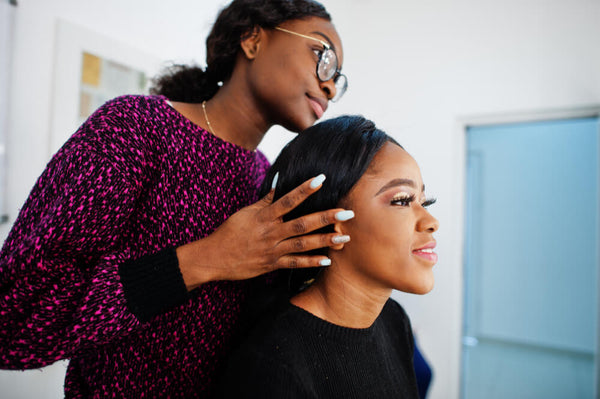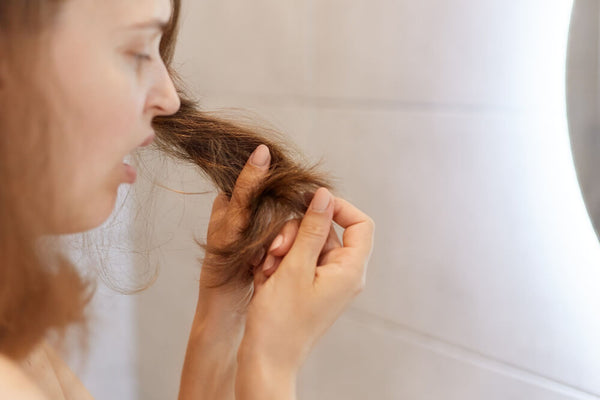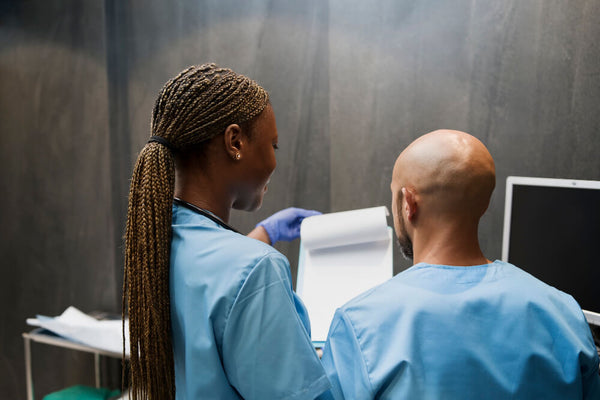Let me tell you about Jessica, a 38-year-old teacher who came to my Atlanta clinic clutching a Ziploc bag full of hair. "I had COVID three months ago," she said, her voice shaking. "Now I'm losing more hair each day than I used to lose in a month."
If you're finding hair everywhere—on your pillow, in your brush, circling the drain—and you had COVID a few months back, you're not going crazy. You're experiencing what we're seeing in clinics everywhere: post-COVID telogen effluvium.
And let me be clear from the start: this type of hair loss is almost always temporary. But knowing that doesn't make it less terrifying when you're watching your hair disappear.
What's REALLY Happening to Your Hair
Think of your hair follicles like workers in a factory. Normally, about 90% are busy growing hair while 10% are on break. COVID—or any major physical stress—is like a fire alarm that forces way too many workers into the break room at once.
About three months after the stress event, all those "workers" who took an emergency break decide to quit at the same time. That's why the massive shedding hits months after you've recovered—your hair growth cycle runs on a delay.
The good news? The factory isn't closing. Those follicles are just resetting. The bad news? It takes time for new workers to get hired and trained.

Why This Feels Different From Regular Shedding
Post-COVID hair loss isn't subtle. Women describe it as:
-
Clumps of hair coming out when they shampoo.
-
Finding hair all over their clothes, desk, and car.
-
Seeing their ponytail thickness cut in half.
-
Noticeable thinning all over, not just in one area.
What's especially cruel is that this often happens just when you think you're finally recovered from COVID. Your energy is back, your sense of smell returns, and then—bam—your hair starts abandoning ship.
Our Approach: We Support Recovery, Not Just Wait It Out
While most of the post-COVID hair loss issues resolved on their own, we have the perfect treatment plans to help your body recover your hair growth faster and more efficiently.
-
We Start with the Right Diagnostics
First, we make sure that it's actually telogen effluvium instead of something else that COVID might have triggered. We use trichoscopy to examine your follicles and then run your blood work to check for any kind of nutrient deficiencies that the COVID virus could have worsened.
-
We Support the Regrowth Environment
While we can't stop the shed once it starts, we can make sure the soil is ready for new growth. We might use scalp treatments to reduce inflammation and PRP therapy to give those dormant follicles a strong wake-up call.
-
We Address the Nutrient Depletion
COVID had the ability to decrease your body’s iron, vitamin D and other nutrients. All such supplements are crucial for hair growth. We create targeted supplement plans that aree based on your actual levels instead of guesswork.
What Actually Helps During the Shedding Phase
Wash Your Hair Regularly
I know it's terrifying to see all that hair in the drain, but avoiding washing lets shed hairs build up and makes it look even worse when you finally do wash.
Be Gentle With Styling
This isn't the time for tight braids or heat styling. Your hair is already stressed—don't add physical stress to the equation.
Focus on Nutrition
Even if you don't have much appetite, prioritize protein, iron-rich foods, and colorful vegetables. Your hair is literally made from what you eat.
Manage the Mental Toll
The emotional impact of hair loss after surviving COVID is real. Many of my clients benefit from talking to someone who understands this unique form of post-COVID stress.
When to Come See Us
Most post-COVID shedding lasts 3-6 months, but come see us if:
-
The shedding continues past 6 months.
-
You're developing actual bald patches.
-
The emotional toll is affecting your daily life.
-
You want to ensure the regrowth is as robust as possible.
The Light at the End of the Tunnel
I've watched hundreds of women come out the other side of post-COVID hair loss. It starts with tiny new hairs along your part that feel like peach fuzz. Then those hairs gradually thicken and darken. Slowly, your ponytail feels substantial again.
The process requires patience—hair only grows about half an inch per month—but the regrowth does come.

Ready for Support Through the Shed?
If you're in the thick of post-COVID hair loss and need more than "just wait it out," book your Hair Therapy Evaluation with us today for just $99. Let's make sure your body has everything it needs to regrow strong, healthy hair.














